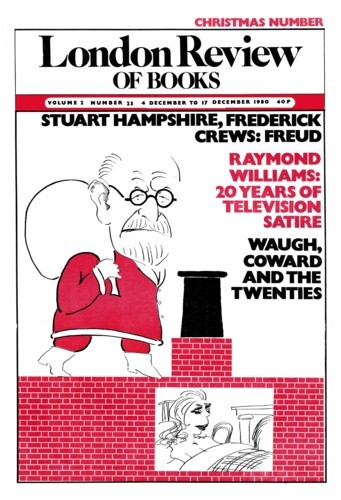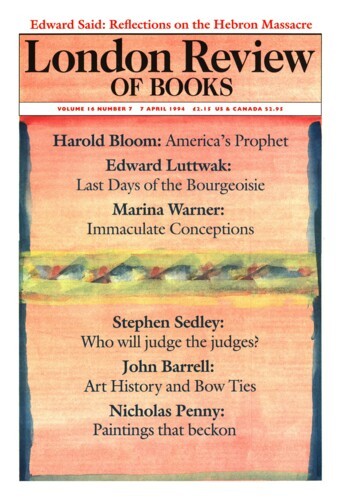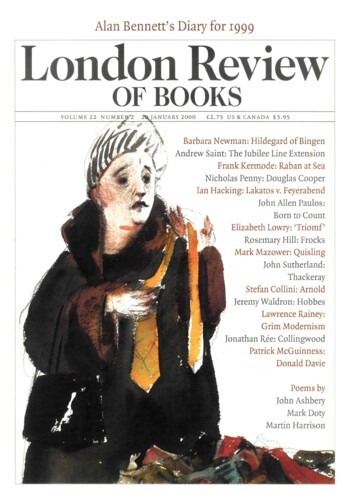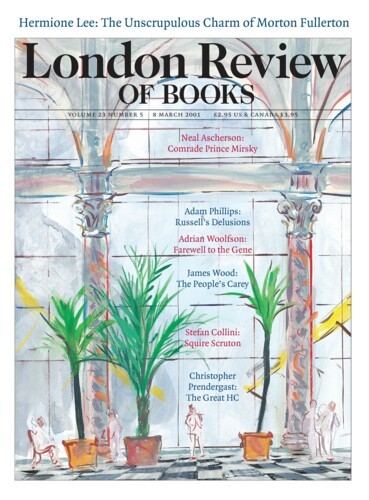Dream of the Seventh Dominion
Stefan Collini, 4 December 1980
At All Souls in 1932, Lewis Namier provoked Isaiah Berlin by scornfully dismissing the history of ideas – dismissing it in German, though the rest of the conversation (or rather harangue) was conducted in English – as ‘what one Jew cribs from another’. But for some unpredictable migrations and a few world-historical hiccups in the previous decades, this exchange might have been taking place – quite possibly in French – in, say, Warsaw or St Petersburg. One could no doubt imagine other circumstances which would have resulted in few English readers now being interested in the opinions of Ludwik Bernsztajn Niemirowski (he had, in fact, already changed this name twice by the time he became a British subject in 1913). Yet the distinctive flavour of the scene depends upon the Englishness of its setting, in an intellectual as well as a physical sense.





